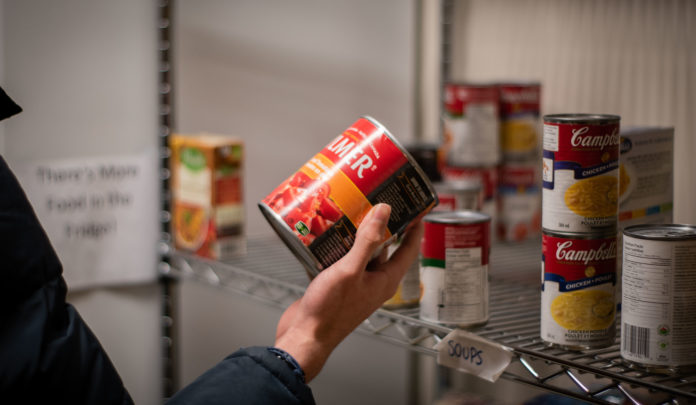
The effects of rising inflation mean food is flying off the shelves at St. Thomas University’s on-campus food bank.
Claire Morrison of STU’s Campus Ministry, which runs the food bank, said demand has been extremely high. The locker, located on the basement level of Brian Mulroney Hall, is restocked every Monday within a budget of $150.
“By Tuesday, most of that will be gone,” said Morrison.
Morrison said funds for the food bank don’t come from university administration. She said it comes from donations, ranging from various groups to some professors who take a dock to their pay every week to contribute.
“We’re sort of eroding away,” said Morrison. “It’s not sustainable.”
Camíla Gomez, a student assistant with the campus ministry, occasionally helps with the food bank and said students will come into the food bank while she restocks and take the food she just replaced.
She makes a list of what needs to be bought for the food bank and often notices items like tomato sauce and pasta are quickly taken, and new items also tend to be taken first.
“If we put something different, people usually take that first,” said Gomez.
Morrison said she struggles to keep the shelves full and rising inflation means a higher budget would help stock the food bank.
Statistics Canada announced on Jan. 17 that the country’s inflation rate stood at 6.3 per cent in December.
“I could probably spend about $300 and then sort of feel like the food bank shelves were comfortably stocked,” she said.
In grocery shopping every week, Morrison noticed a trend in the food that was disappearing quickest. She said students often reached for the grab-and-go meals like macaroni and cheese, which tend to be more expensive.
It prompted her to hold cooking classes on Thursdays at 9 a.m. in Holy Cross House to help students cook for themselves.
“If I’m going to be able to stretch our food bank dollars as far as groceries go, the people who need the food bank are going to have to learn to cook better,” she said.
Besides being more expensive, Morrison said the quick options also tend to be less healthy. She hopes the cooking classes can help students make inexpensive, nutritious and balanced meals.
“The biggest trouble is definitely getting the word out so that there’s greater attendance to events, not to the free meal,” she said.
